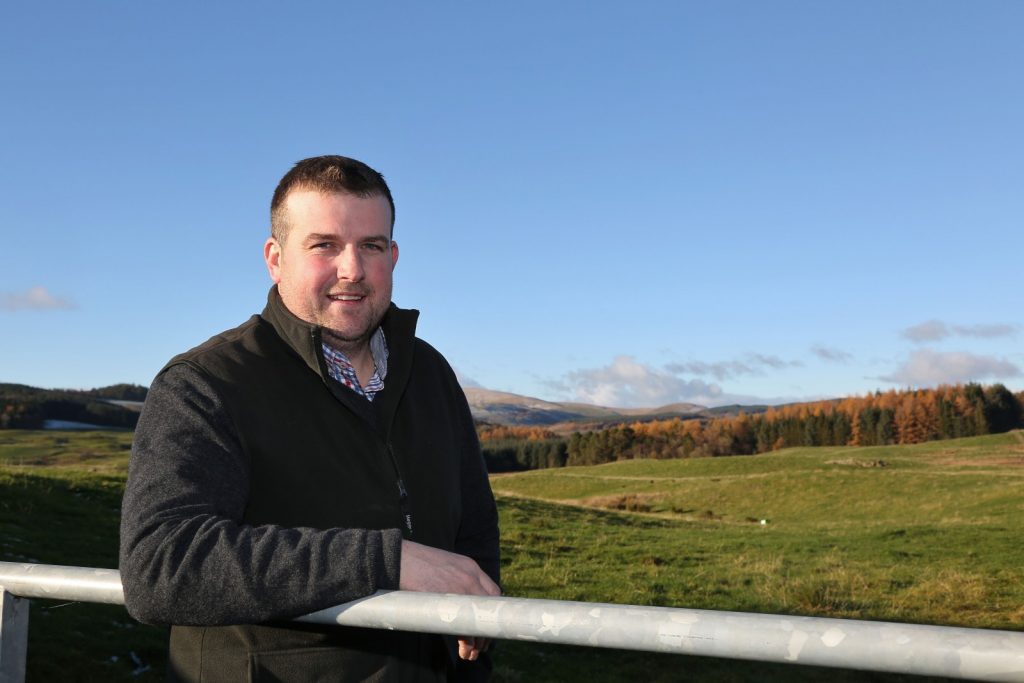The next meeting at the Nithsdale monitor farm (on Thursday 25 May) will focus on the summer plans for managing soils, grassland, the breeding flock and suckler herd at Clonhie Farm.
Chaired by local farmer Colin Forsyth, chair of the management group at Clonhie, the meeting on 25 May runs between 1.30pm and 4.30pm and will have a packed programme covering a range of subjects of interest to livestock farmers.
Host farmer Andrew Marchant said: “Lambing has gone well, and with only a handful of our Luing cattle left to calve, we are beginning to make plans for the year ahead.”
As well as a tractor and trailer tour of Clonhie and Glengar Farms, which are run as one unit by the family, there will be an update from the Marchants on the monitor farm’s activities since the last meeting and their plans going forward.
Improving the quality of their soil and grassland is a real focus for the farm. The Marchants have already limed some fields and plan to rake out a couple of fields this spring. They are also considering moving towards a winter paddock grazing system and have been measuring grass around the farm every three weeks.
Mr Marchant said: “We want to manage our grass better in order to reduce costs and increase output per hectare on the farm.”
Andrew Best from Watsons Seeds will lead a discussion about how farms can improve their soil quality and share the results of the soil analysis from Clonhie.
Andrew Marchant believes that monitoring lamb growth weights using EID technology will be a useful tool to measure performance of the Clonhie flock in the future. With almost 1,000 ewes, the need for a decent sheep handling unit is paramount and at the meeting there will be a demonstration of a Te-pari Racewell sheep handler and auto-drafter, along with the new cattle handling system the Marchants have just invested in.
The meeting will also give a progress report on a small trial they are running looking to see if there is a difference in growth rates in castrated lambs compared to those left entire, and to lambs offered a creep feed compared to those without access to creep.
The Nithsdale monitor farm is one of nine monitor farms that have been established around Scotland in a joint initiative by Quality Meat Scotland (QMS) and AHDB Cereals & Oilseeds. The aim of the programme, which is funded by Scottish Government, is to help improve the productivity, profitability and sustainability of Scottish farm businesses.
Monitor farm meetings are open and free for all farmers to attend. Attendees will also have an input into topics covered, speakers invited to meetings and visits to other enterprises and businesses.
To book your place please contact Judith Hutchison, by 12 noon on Monday 22 May, on 07718 919055 or email judith.agridigm@icloud.com .
For more information about the monitor farm programme visit www.qmscotland.co.uk or cereals.ahdb.org.uk.
Ends





